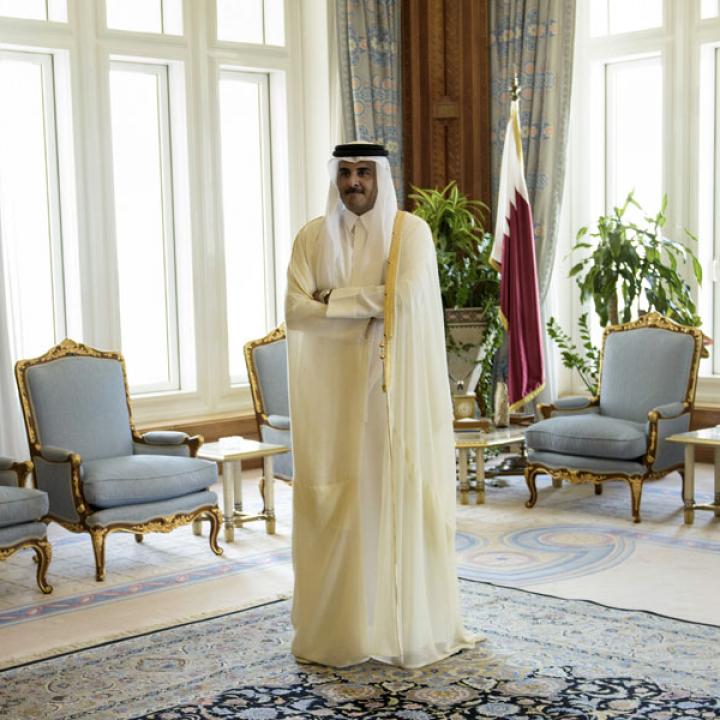
- Policy Analysis
- Policy Alert
U.S.-Qatar Talks Likely to be Crucial to Iran Policy

The Oval Office meeting between President Trump and Emir Tamim could have many agenda items, but the regional tension with Tehran will be foremost.
When Emir Tamim bin Hamad al-Thani goes to the White House on July 9, it will likely be with a sense of triumph. The Qatari leader has survived more than two years of diplomatic and economic isolation by his immediate neighbors, Saudi Arabia, the United Arab Emirates, and Bahrain. And with its giant al-Udeid airbase, Qatar is now central to U.S. contingency planning for coping with the developing crisis caused by Iran’s recent nuclear program violations and its attacks on oil tankers and pipelines.
Meanwhile, President Trump, who initially endorsed the Gulf blockade on Qatar—deemed to be “a funder of terrorism, and at a very high level”—has since spoken warmly of Doha, thanking it for both its hospitality at al-Udeid and multi-billion purchases of American weapons. And Emir Tamim’s rivals, the instigators of the blockade, appear to be avoiding Washington. Saudi crown prince Muhammad bin Salman remains embroiled in the controversy of the killing of dissident journalist Jamal Khashoggi and de facto Emirati leader, Crown Prince Muhammad bin Zayed of Abu Dhabi, earned a mention in the Mueller Report because of his Russian contacts.
But the Qatari leader’s visit will not be without its own awkwardness. Doha remains tolerant of hate-speech in mosque sermons, textbooks, and particularly the Arabic-language output of its al-Jazeera satellite broadcasting station. Furthermore, Doha’s balancing act includes funding for Palestinians in Gaza, with prospective agreements in the fields of defense, energy, investment and air transport—an arrangement agreed with and facilitated by Israel. And as with other Gulf countries, there continue to be concerns about Qatar’s actions on terrorist financing. Even if passed over in the White House, these subjects are sure to come up in the Qatari leader’s meetings with members of Congress and other parts of the Administration.
On Iran, Doha’s position is nuanced by the huge offshore gas field it shares with its neighbor across the Gulf. Tehran’s exploitation of its own portion has been delayed by the effect of sanctions while Qatar’s already established stream of revenues has transformed its economy and made it a player in international diplomacy, sport, and air travel. The aforementioned regional blockade has only increased the importance of maintaining overflight rights with Iran.
Yet Qatar has also been a good U.S. ally, readily hosting the extra B-52 bombers and F-22 stealth fighters sent out to the region in recent weeks, while other states have been more cautious. Its defenses have also been reinforced by extra Patriot missiles. As part of a developing trend, Washington has worked to lessen Doha’s isolation; the Qatari finance minister was at the economic workshop in Bahrain last month, which discussed development aid to the Palestinians. Riyadh has returned liaison officers to al-Udeid but the UAE is a hold-out on such compromises.
The symbolism of the meeting is probably as much as can be expected. But assuming the usual access by the media scrum in the White House, it may also be an opportunity for President Trump to respond to the leaked assessments by the British ambassador Kim Darroch that his administration is “inept” and its Iran policy is “incoherent” and “chaotic.” Governments across the world, as well as Tehran, will be hoping for some clarity.
Simon Henderson is the Baker Fellow and director of the Bernstein Program on Gulf and Energy Policy at The Washington Institute.



